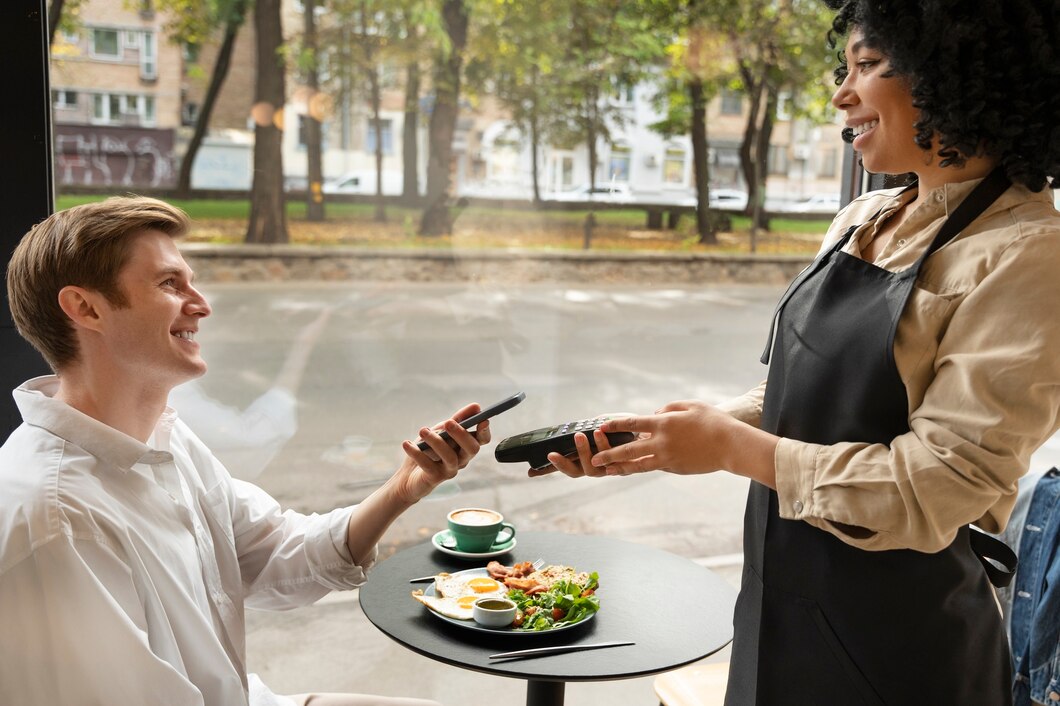Moving to a new country can feel like diving headfirst into the deep end of a pool—you want to make a splash, but you also worry about how to stay afloat. Bangkok presents an exciting opportunity for expats, filled with vibrant culture, delicious street food, and friendly locals, but preparing for this adventure takes careful planning. Knowing where to start can really help lessen the stress: from creating a financial plan to securing a job or reliable online income, every step matters. In this guide, we’ll walk you through what to consider before making Bangkok your new home, ensuring your transition is as smooth as possible. Let’s dive in!
To move to Bangkok, first, create a clear financial plan, including savings for living expenses and international movers; securing a job or reliable online income is crucial. Additionally, research housing options in popular expat areas like Sukhumvit or Sathorn, prepare for cultural differences by learning basic Thai language phrases, and stay informed about visa requirements to ensure a smooth transition into your new life.
Preparing For Your Move
Securing a reliable online income is not just a good idea—it’s essential when relocating to Bangkok. Many expats find success through remote work opportunities in various fields, whether it’s teaching English or providing IT support services. These remote jobs offer flexibility, allowing you to explore the vibrant culture and beautiful landscapes of Thailand while guaranteeing that monthly paycheck. The tech world may be limited in Bangkok, but there are niches where you can effectively connect with employers or clients abroad.
Having a clear understanding of what type of work will sustain your lifestyle is pivotal. Speak with others in your field via forums or social media groups dedicated to expats in Thailand to uncover insights and job openings.
As you establish your income strategy, it’s crucial to consider any ties that might hold you back from making a clean break.
Clearing commitments at home solidifies your decision to move and helps eliminate distractions during your transition process. For instance, finishing up educational obligations or fulfilling employment contracts can pave the way for a smooth relocation. This not only provides mental clarity as you prepare for your new life but also minimizes potential feelings of being tied down by unfinished business.
Imagine having the peace of mind to focus solely on your new adventure without lingering responsibilities weighing on your conscience!
It might feel daunting at first, but many expats have successfully navigated this path by prioritizing their commitments before making the leap.
Speaking of preparation, don’t overlook the logistics of the move itself. Researching reliable moving companies that specialize in international relocations will alleviate any anxiety related to transporting your belongings. By working with professionals who understand the nuances of international shipping, you can rest assured knowing that everything from your trusty coffee maker to cherished books is taken care of.
It’s worth noting that investing time in local communities can be immensely beneficial once you arrive in Bangkok. Engaging with fellow expats fosters connections that may lead to friendships and networking opportunities. So whether it’s joining a local gym or attending cultural events, getting involved early on can make navigating your new environment more enjoyable.
And finally, think about packing smartly: What do you absolutely need? What can you buy easily in Bangkok? Keeping these questions in mind will smoothen not just your packing process but ease your transition into Thai life as well.
As we explore these critical considerations further, we’ll next examine the key documents and visa requirements you’ll need for starting this exciting chapter of your life.
Essential Documents and Visas
Acquiring the correct visa is absolutely crucial for a smooth transition into life in Bangkok. Without the right documentation, what should be an exciting adventure can quickly turn into a bureaucratic nightmare. Each type of visa serves a specific purpose, and knowing which one suits your circumstances will save time and stress.
Types of Visas
When choosing a visa, it’s important to consider your intentions while living in Thailand. Here’s a breakdown of the main types you might encounter:
- Tourist Visa: This temporary option is ideal for travelers planning short stays, typically up to 60 days, with an option for a one-time extension. Perfect if you’re scoping out how you feel about living in Bangkok before making any long-term commitments.
- Non-Immigrant Visa: If you’ve got specific goals in mind—business ventures, family connections, or even retirement—this visa fits well. It’s valid for 90 days but has extensions available, allowing you to establish deeper roots if everything aligns.
- Work Visa: Securing a job offer from a Thai company is essential here. The work visa comes with a required work permit and offers validity for up to one year, letting you immerse yourself in the local workplace environment.
- Education Visa: If learning Thai or pursuing academic goals excites you, this visa is for students enrolled in Thai language courses or universities. It grants you a one-year stay while you focus on your studies.
It’s always wise to check the latest regulations on the Thai embassy website, as visa requirements can evolve with shifting policies.
Once you’ve settled on the right visa type, it’s time to gather all necessary documents to support your application.
Document Checklist
Having the correct documents ready is just as important as applying for the right visa. You wouldn’t want to scramble at the last minute, so prepare yourself with this essential checklist:
- Your passport must have at least 18 months of validity left; make sure to double-check those expiration dates!
- Prepare copies of your birth certificate and marriage certificate if they apply to your situation.
- Gather academic transcripts and professional records for job applications; having these on hand can expedite potential employment opportunities.
By keeping proactive about obtaining the correct visas and organizing your documents beforehand, you’re setting a solid foundation for your new life in Bangkok. You’ll be surprised how that little bit of foresight can ease you into what promises to be a vibrant experience.
With these vital steps covered, you’ll be ready to navigate the landscape of options for securing accommodation in this bustling city!
Finding Accommodation
Bangkok’s housing market is indeed diverse, accommodating everyone from those seeking luxury condos to budget-conscious individuals looking for an affordable apartment. As you embark on this housing hunt, it’s important to consider what suits your lifestyle best before making a decision.
For instance, if you’re someone who thrives on excitement and social interactions, Sukhumvit could be your ticket to vibrant nightlife and endless dining choices. Meanwhile, if you crave a serene environment, neighborhoods like Ari offer quieter streets lined with greenery. It’s all about aligning your living situation with the kind of life you envision.
Finding the right accommodation can feel overwhelming initially. However, breaking it down into manageable steps makes it easier. Start by determining your budget. With monthly expenses in Bangkok estimated between $2,000 and $2,500 for a comfortable lifestyle, understanding where rent fits within that budget will guide your search. Thankfully, rent prices in Bangkok are generally lower compared to many Western cities, which is a huge plus for potential expats seeking affordable living arrangements.
Remember that local amenities play a significant role too. Areas close to public transportation or markets tend to enhance the overall living experience, allowing easy access to conveniences.
Once you’ve narrowed down your desired areas and set your budget, it’s time to explore various online resources that can assist you in finding the perfect housing match. Websites like Airbnb, DDproperty, and Craigslist serve as excellent platforms for initial research and short-term rentals. However, keep in mind that while online listings provide valuable information, they might not fully capture the local nuances of each neighborhood.
Engaging with fellow expats can significantly enhance your understanding of the housing landscape in Bangkok.
Joining expat forums or Facebook groups specifically focused on living in Bangkok can be one of the best moves you make during your search. Not only do many members share their personal experiences regarding safe neighborhoods and affordable housing options, but they also offer candid recommendations that may not surface during online searches. Think of it as having a trusted friend guiding you through an unfamiliar city’s real estate maze.
Whether you’re scoping out luxury condos or simple yet cozy apartments—armed with insights from both online tools and community advice—you can navigate Bangkok’s housing market with confidence. Regular engagement with local forums will help identify trends and even reveal recently available properties before they hit mainstream listings. Blending traditional online research with communal knowledge ensures you find an ideal place fitting not just your needs but also embracing the vibrant life that Bangkok promises.
With accommodation secured and insights gained, understanding how to traverse this bustling city will be essential for maximizing your expat experience.
Navigating Bangkok Transportation
Getting around the bustling streets of Bangkok may initially seem overwhelming, especially to newcomers. However, understanding the local transport landscape can greatly enhance your experience in this vibrant city. The BTS Skytrain and MRT Subway are not just modes of transportation; they are lifelines for thousands of commuters each day, providing fast and efficient access to popular areas. Not only do these systems help you avoid the notorious Bangkok traffic jams, but they also offer breathtaking views of the city’s skyline as you zip through on elevated tracks.
| Transport Type | Cost (approx.) | Coverage |
| BTS Skytrain | $0.50 – $1.50 per ride | Main urban areas |
| MRT Subway | $0.50 – $1.00 per ride | Urban core |
| Bus | $0.30 per ride | Extensive network |
| Taxi/Grab | $2.00 – $5.00 per ride | Citywide |
For those who prefer more flexibility, traditional taxis and digital apps like Grab serve as convenient alternatives. While both options are widely available, using metered taxis is highly advisable to avoid inflated fares—an unfortunate reality in busy tourist areas. Always be sure to request a meter, or you might find yourself in a situation where the fare significantly exceeds your expectations.
If you’re situated in a location that’s less serviced by these mainstream options, motorbike taxis can be a game-changer.
Motorbike taxis provide a unique twist on transportation—allowing passengers to weave expertly between cars during congested periods—but they do come with their own set of challenges. You can spot them easily; they often wear bright-colored vests and congregate at designated bike-taxi stands. Although this option is incredibly quick, safety should remain a priority: always wear a helmet and make sure your driver has good ratings if you’re using an app like Grab for booking.
“In Bangkok, time isn’t just money; it’s also sanity.” This rings particularly true when considering how quickly you can move through heavy traffic on two wheels rather than four.
Ultimately, choosing the right mode of transportation will depend on your comfort level with navigating the city and your willingness to experience its vibrant chaos.
As you explore ways to traverse this lively metropolis, understanding how to budget for living expenses will further ease your transition into this dynamic culture.
Budgeting and Cost of Living
Understanding the cost of living in Bangkok is paramount for planning a budget that meets both your needs and lifestyle. With its vibrant culture, delicious food, and friendly locals, you can enjoy life without breaking the bank. Average monthly expenses can swing dramatically based on your choices; hence, knowing where to allocate your money can make all the difference.
Basic Expenses
On average, monthly expenses typically include:
- Rent: While the cost largely varies depending on location and property type, expect to pay between $500 and $1,500 for rent. A simple studio in areas like Sukhumvit may hover around the $600 mark, while quieter neighborhoods might surprise you with prices as low as $200.
- Groceries: A budget of about $200 to $300 a month is generally sufficient for grocery shopping. Local markets are especially affordable, allowing you access to fresh produce at great prices.
- Dining Out: Eating out in Bangkok need not be expensive; meals at local eateries typically cost around $2 to $10. Exploring street food options not only exposes you to a variety of delicious dishes but also helps keep your dining costs down.
- Utilities: Expect to budget approximately $100 to $150 for utilities such as electricity, water, and internet.
- Transportation: You can budget around $50 to $100 per month because public transport is both efficient and economical. Don’t forget that many areas are walkable too!
To ensure a smooth financial journey, setting aside an emergency fund equivalent to at least three months’ expenses can provide peace of mind against unexpected costs.
To maximize your budget in Bangkok, consider embracing the local lifestyle. This means adapting to their shopping habits and utilizing transportation methods like buses and taxis, which offer a cost-effective way to navigate the city.
Discovering streets filled with open-air markets packed with fresh fruits and vegetables can change your grocery game entirely. Not only will it give you an opportunity to savor the freshest ingredients, but you’ll also find prices that are substantially lower than supermarkets.
By immersing yourself in local practices and experiences, you control your spending while enriching your time in this vibrant city. The key is knowing where to look—and that’s half the adventure of moving here.
As financial considerations fade into the background, it becomes essential to explore how to connect deeply with your new environment.
Embracing Local Culture and Language
Embracing local culture is essential to truly feeling at home in Bangkok. It’s not just about sightseeing; it’s about connecting with the people and their traditions. Learning some basic Thai language skills goes a long way not just for navigating daily interactions but also in fostering goodwill among the locals. Even a simple smile accompanied by a “Sawadee” (Hello) or a “Khop Khun” (Thank you) can break down barriers that may initially feel insurmountable. These small gestures show respect and appreciation, making locals more inclined to engage with you.
Familiarizing yourself with cultural dos and don’ts can provide deeper insight into Thai society, helping you navigate unfamiliar situations with ease. For example, showing respect for the Thai royal family is paramount; discussing or mocking them can lead to severe consequences. When visiting homes or temples, remember that removing your shoes is expected—this simple act demonstrates humility and respect for the sacredness of those spaces.
Understanding these social cues fosters community acceptance. Concrete rules like not touching someone’s head—considered sacred—and avoiding pointing with your feet—regarded as exceptionally rude—can help you blend in more successfully.
- Do: Respect the Thai royal family.
- Do: Remove shoes before entering homes or temples.
- Don’t: Touch anyone’s head, which is considered the most sacred part of the body.
- Don’t: Point with your feet, as it is seen as disrespectful.
One expat shared an enlightening experience about how learning simple phrases helped him navigate local markets more smoothly. By mastering basic expressions, he found himself engaging with vendors, resulting in not only better prices but also friendly conversations that enriched his understanding of local crafts and food.
Understanding cultural norms enhances your experience and helps pave the way for meaningful relationships in this bustling metropolis. Transitioning from these insights into practical opportunities will inform your journey further.
Work and Employment Opportunities
Moving to a new city can be both exciting and daunting, especially when it comes to securing employment. While it’s often recommended to have a job lined up before your arrival for added stability, Bangkok’s diverse economy offers a plethora of opportunities for those willing to explore. Whether you’re seeking work in teaching, technology, or hospitality, the key is to approach your job search with an open mind and proactive attitude.
Major Industries
In Bangkok, several key sectors are thriving, creating numerous avenues for employment. One of the most accessible options for expatriates is teaching English, where demand excels due to a growing interest in language acquisition among Thai students. It’s estimated that over 50,000 foreigners currently work in Thailand’s educational field alone.
Other major industries include information technology, tourism, and hospitality, each presenting unique roles for skilled workers.
The competitive edge often comes from specialized qualifications; for instance, having a TEFL certification can greatly enhance your prospects in teaching roles while also positively impacting starting salaries. Websites like Ajarn.com curate myriad teaching vacancies, making them invaluable resources for job seekers. I recommend lodging your initial job applications while still back home, as this allows you to highlight your proactive nature. Once in Bangkok, attending interviews personally will showcase your commitment and readiness.
An expat English teacher shared her experience: “Having my TEFL certification significantly changed my job prospects and starting salary.”
For those looking beyond teaching positions, securing non-teaching roles can indeed be a journey filled with potential rewards.
Networking becomes essential in expanding your options within Bangkok’s dynamic job market. Engaging with local events, joining business communities specific to your industry interests, and leveraging online platforms like LinkedIn can open doors to unexpected job opportunities. By immersing yourself in the community and fostering professional relationships, you increase your chances of landing desirable positions that might not even be advertised publicly.
Ultimately, combining an understanding of Bangkok’s rich cultural landscape with strategic networking and applying to jobs across various sectors will set you on the path to finding fulfilling work as an expatriate in this vibrant city. Your success largely hinges on adaptability and a willingness to engage with locals and fellow expats alike.
Keep an eye for more news & updates on BangKokTribune!



